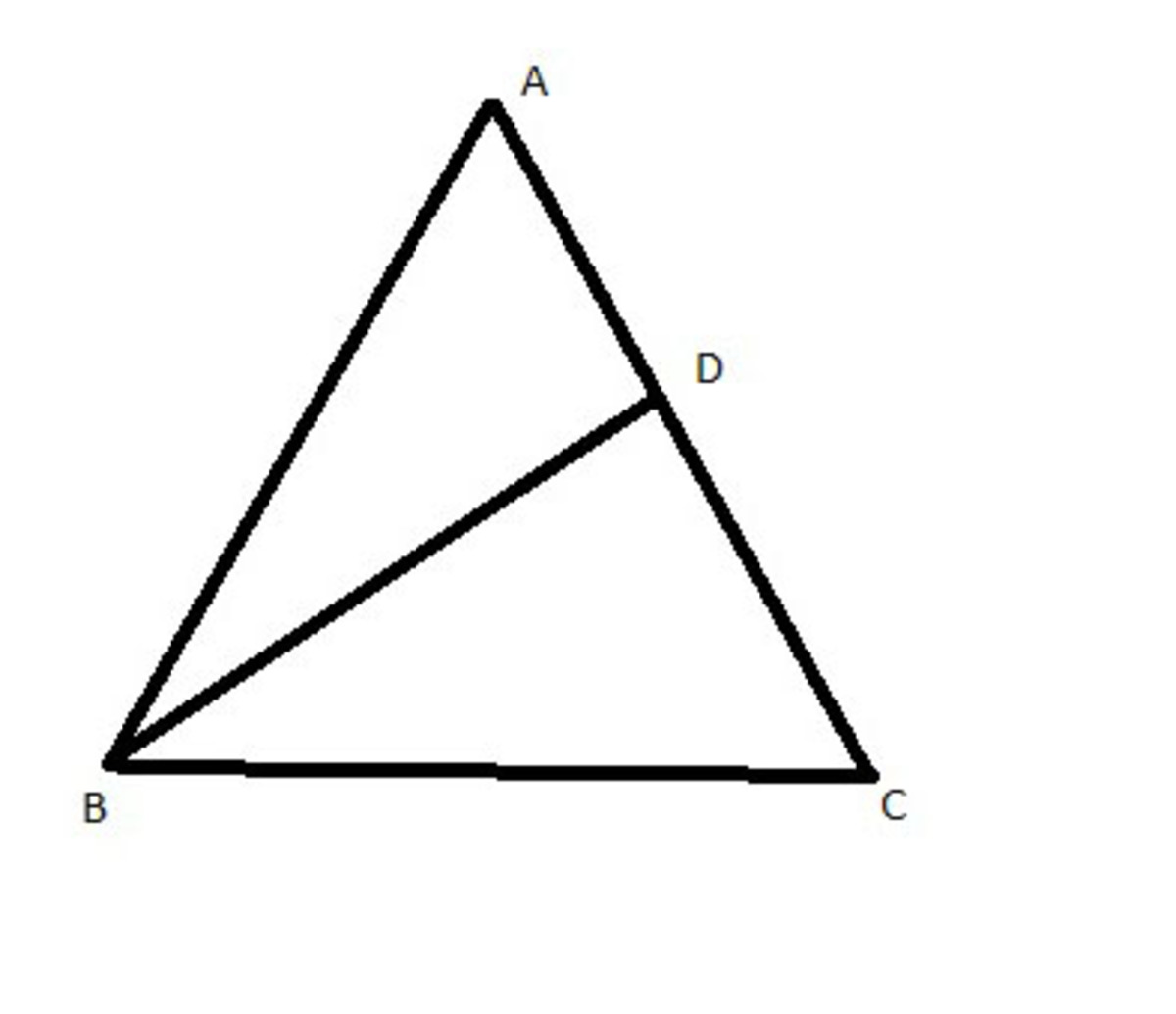A geometry problem by Aman thegreat

In the given figure, is a point lies on the side of triangle such that . Then - always equals?
Note: Image is not to scale
This section requires Javascript.
You are seeing this because something didn't load right. We suggest you, (a) try
refreshing the page, (b) enabling javascript if it is disabled on your browser and,
finally, (c)
loading the
non-javascript version of this page
. We're sorry about the hassle.
△ A B C ~ △ B D C because they have two pairs of congruent angles ( ∠ B D C = ∠ A B C and ∠ A C B = ∠ B C D ), and so D C B C = B C A C or B C 2 = A C ⋅ D C . Subtracting D C 2 on each side of the equation gives B C 2 − D C 2 = A C ⋅ D C − D C 2 , and factoring D C on the right side of the equation gives B C 2 − D C 2 = ( A C − D C ) D C . Since A C − D C = A D by segment subtraction, substituting this gives B C 2 − D C 2 = A D ⋅ D C